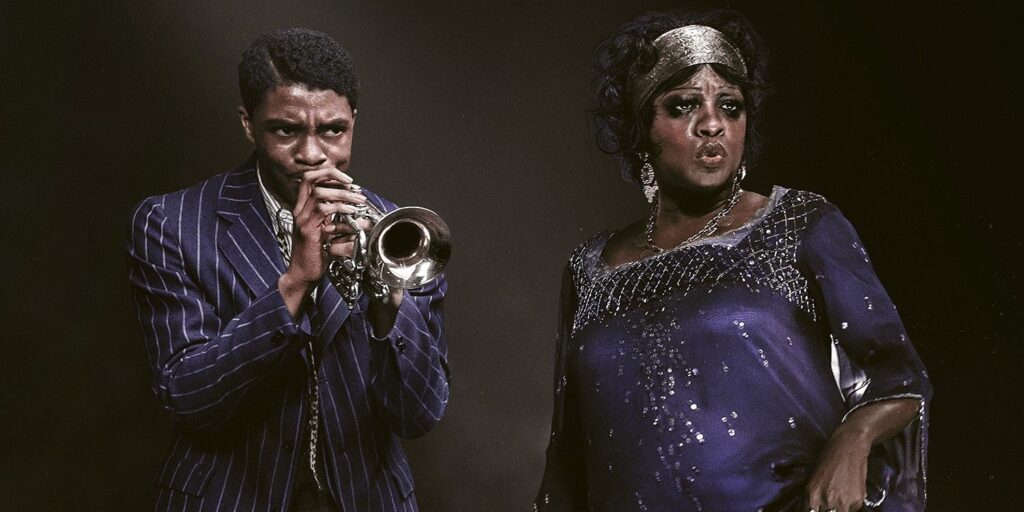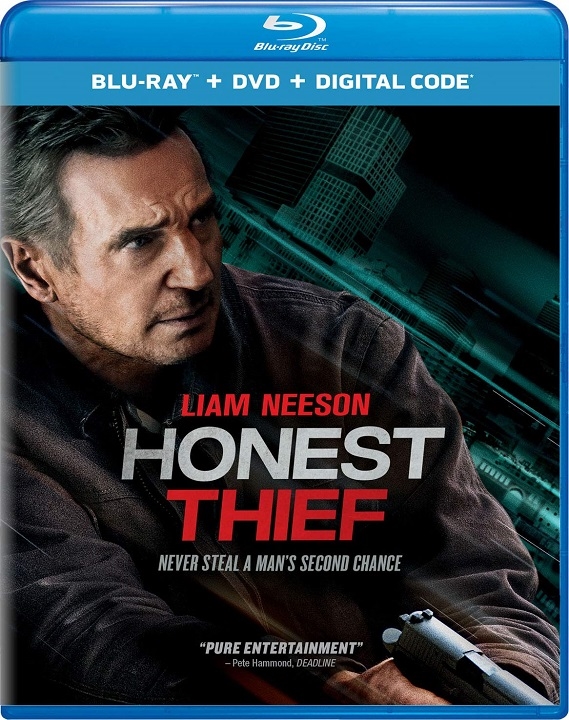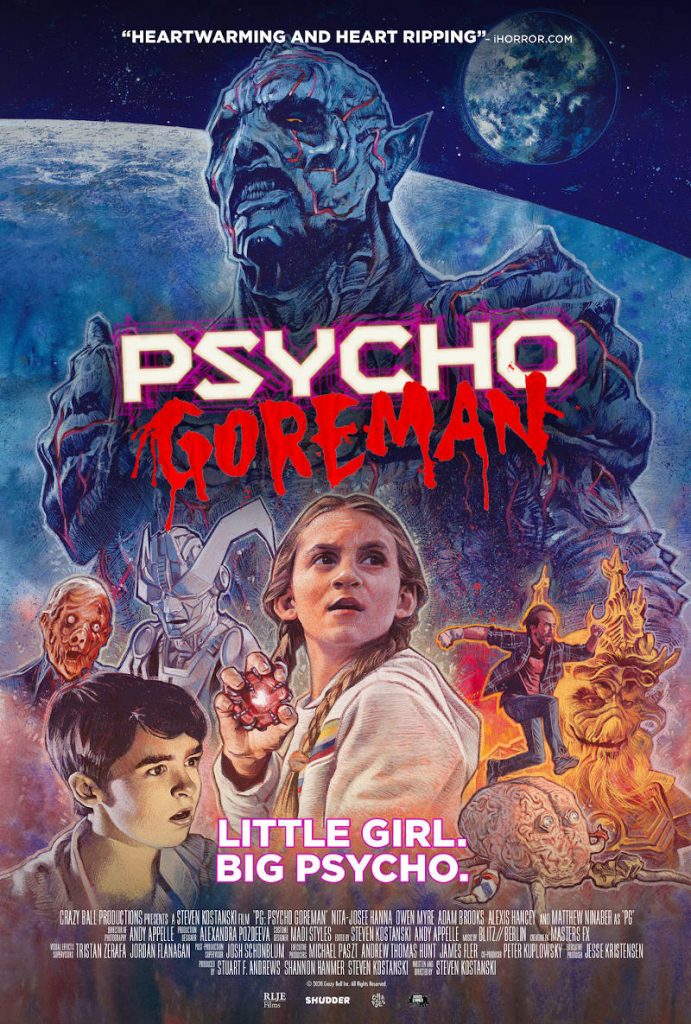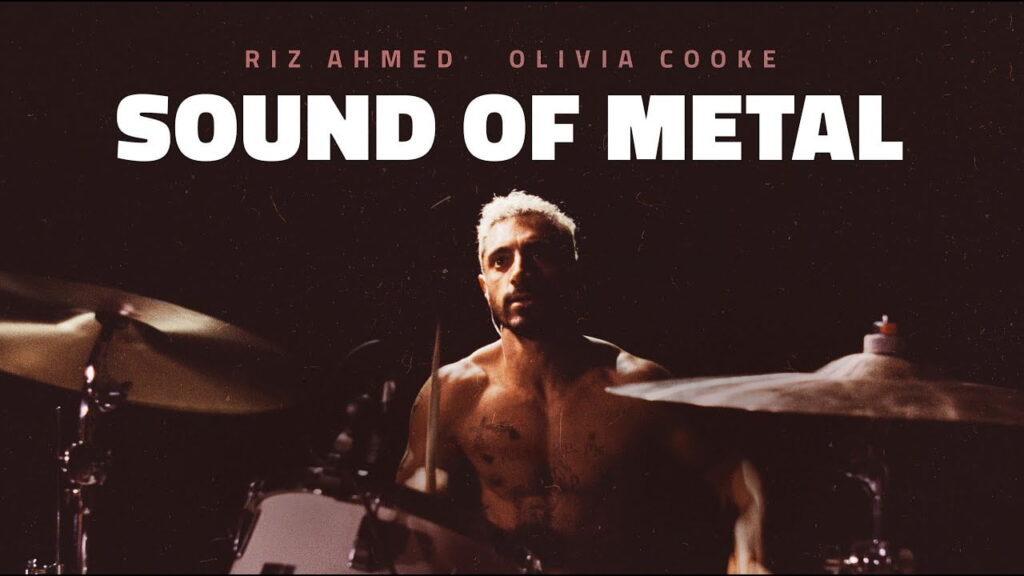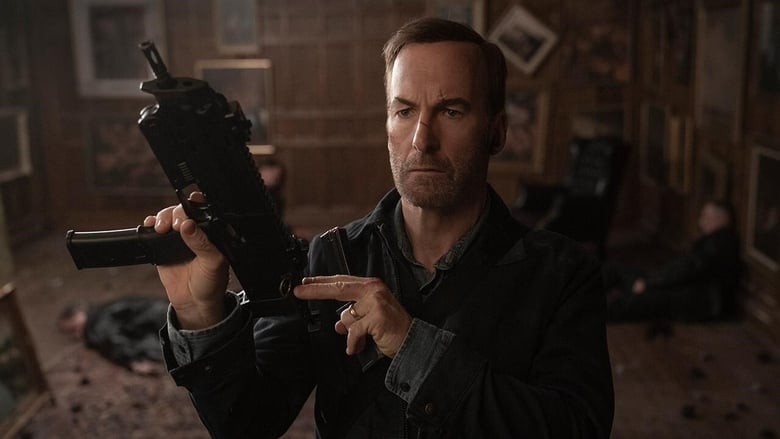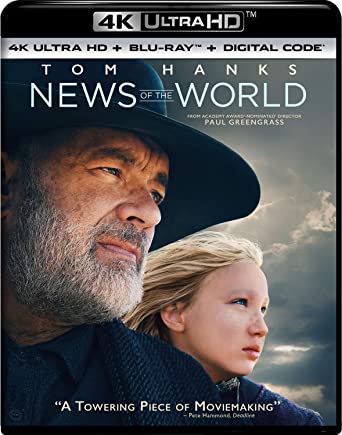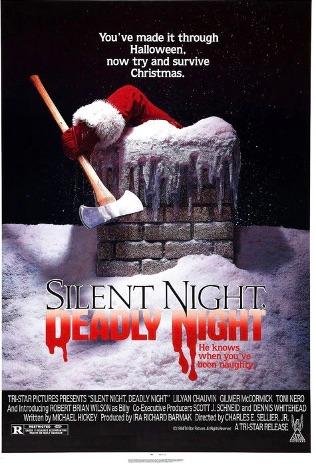KANSAS CITY, Mo. – Panic Fest kicks off two weeks of genre packed programming as the ninth annual festival begins April 8, 2021, virtually and in person at Screenland Armour in Kansas City, MO.
“We are absolutely thrilled to be able to offer Panic Fest as both in-person and virtual experiences. It’s important that we allow for all comfort levels and situations. The prospect of bringing Panic Fest to the entire country is unbelievably exciting for us,” says Panic Fest Co-Founder Adam Roberts.
This year’s lineup includes over 25 feature films and 40+ short films from around the world in addition to signature podcasts, special events, and virtual meet-ups via the Gather platform.
Panic Fest Co-Founder Tim KC Canton says, “We know that our festival is built upon networking and a sense of community. We wanted to ensure that when people attend virtually that it feels like our festival. That they walk away with new relationships as well as discovering new, emerging voices through our unparalleled programming.”
For the first time in fest history, all films will be in contention for awards picked by audience members. “Each year we assemble a panel of judges to decipher the awards. This year we’re putting that in the hands of our attendees,” says Canton.
Panic Fest continues their partnerships with IFC Films, Shudder, Dark Sky Films, Epic Pictures, Dark Star Pictures, and Fangoria. New this year as presenting sponsors are 4 Hands Brewing Company and Logboat Brewing Company.
“Horror movies and great beer. It’s one of the all-time great matches and we couldn’t be happier with our new partners,” says Roberts.
The festival will utilize the latest in networking applications to bring the fest experience into your home with meet-ups, happy hours, and more over the Gather platform and special events via Clubhouse.
Panic Fest kicks off April 8, 2021, as one of the leading genre festivals in the world. Don’t miss what MovieMaker Magazine and Dread Central have named one of the best genre festivals in the world for three years running.
Get your tickets here.
Feature Film Programming
An Ideal Host
D: Robert Woods
Regional Premiere, 1h 25minLiz just wants to host the perfect dinner party but an unexpected guest sends the evening into chaos, with potentially apocalyptic consequences.
An Unquiet Grave
D: Terence Kray
Regional Premiere, 1h 12min
A year after the death of his wife, a man enlists her sister to help him bring her back.
Below the Fold
D: Clayton Scott
World Premiere, 1h 32min
Without a trace, Susie Potter vanished from her home in the quiet town of Skidmore, Missouri. Ten years later, two reporters uncover a harrowing new detail, which leads them on an obsessive hunt for the truth through the dark labyrinth of rural northwest Missouri.
Benny Loves You
D: Karl Holt
Regional Premiere, 1h 34min
Jack is desperately trying for a new start in life, but when he throws away his childhood bear Benny, it’s a move that can only end in death.
The Blazing World
D: Carlson Young
Regional Premiere, 1h 41min
Decades after the accidental drowning of her twin sister, a self-destructive young woman returns to her family home, finding herself drawn to an alternate dimension where her sister may still be alive.
Blood Conscious
D: Timothy Covell
North American Premiere, 1h 46min
A vacationing family turns the tables on a mass shooter who claims to be fighting demonic forces.
Caveat
D: Damian Mc Carthy
Regional Premiere, 1h 28min
A lone drifter suffering from partial memory loss accepts a job to look after a psychologically troubled woman in an abandoned house on an isolated island.
Censor
D: Prano Bailey-Bond
Regional Premiere, 1h 24min
After viewing a strangely familiar video nasty, Enid, a film censor, sets out to solve the past mystery of her sister’s disappearance, embarking on a quest that dissolves the line between fiction and reality.
The Carnivores
D: Caleb Michael Johnson
Regional Premiere, 1h 17min
Alice and Bret’s dog Harvey is dying, and he’s ruining everything. What had been a bright little family is quickly getting consumed by clouds of self-doubt, suspicion, and a disturbing amount of ground beef.
The Djinn
D: David Charbonier, Justin Powell, Clayton Scott
North American Premiere, 1h 22min
A mute boy is trapped in his apartment with a sinister monster when he makes a wish to fulfill his heart’s greatest desire.
Duncan
D: John Valley
Regional Premiere, 1h 31min
A dark social satire inspired by the real-life conspiracy theory known as Pizzagate. An amateur journalist and a far-right militiaman team up to expose the ugly truth behind rumors involving sex cults, a pizza place, and the lizard people.
Honeydew
D: Devereux Milburn
1h 46min
Strange cravings and hallucinations befall a young couple after seeking shelter in the home of an aging farmer and her peculiar son.
Jakob’s Wife
D: Travis Stevens
Regional Premiere, 1h 38min
Anne, married to a small-town minister, feels her life has been shrinking over the past 30 years. Encountering “The Master” brings her a new sense of power and an appetite to live bolder. However, the change comes with a heavy body count.
Katherine’s Lullaby
D: Savvas Christou
Regional Premiere, 1h 29min
A teenage runaway who’s trapped by a delusional man, pretends to be his daughter in order to escape.
Keeping Company
D: Josh Wallace
Regional Premiere, 1h 22min
A fateful chain of events begin to unravel after two brash insurance salesmen go knocking on the wrong door and find themselves trapped in a stranger’s basement.
The Last Matinee
D: Maximiliano Contenti
U.S. Premiere, 1h 28min
It’s a soaking wet day with rain pouring down and one of the best things to do is to go seek refuge in a great old cinema. There’s only one problem: A scary murderer is on the loose and he also has taken refuge there.
My Heart Can’t Beat Unless You Tell It Too
D: Jonathan Cuartas
Regional Premiere, 1h 30min
Two mysterious siblings find themselves at odds over care for their frail and sickly younger brother.
Night Drive
D: Brad Baruh, Meghan Leon
Regional Premiere, 1h 22min
A rideshare driver’s life is turned upside down after an unexpected series of misfortunes.
The Old Ways
D: Christopher Alender
Regional Premiere, 1h 30min
Cristina, a journalist of Mexican origin, travels to her ancestral home in Veracruz to investigate a story of sorcery and healing. There, she is kidnapped by a group of locals who claim she’s the devil incarnate.
Parallel Minds
D: Benjamin Ross Hayden
Regional Premiere, 1h 26min
In the near future, an A.I. called URM is investigated by a detective and researcher for a lab about to release a contact lens with the power to record what the eye can see to re-create memories.
Prisoners of Ghostland
D: Sion Sono
Regional Premiere, 1h 40min
A notorious criminal must break an evil curse in order to rescue an abducted girl who has mysteriously disappeared.
Red Snow
D: Sean Nichols Lynch
World Premiere, 1h 20min
A struggling vampire romance novelist must defend herself against real-life vampires during Christmas in Lake Tahoe.
She Watches From the Woods
D: Beau Ballinger
World Premiere, 1h 19min
A troubled artist with a dark past attempts to make peace with her dying mother while investigating the mysterious death of her teenage sister.
The Stylist
D: Jill Gevargizian
1h 45min
A lonely hair stylist becomes obsessed with the lives of her clients and descends into murderous madness.
Threshold
D: Powell Robinson, Patrick Robert Young
Regional Premiere, 1h 30min
A sister claims to be cursed and persuades her brother to embark on a cross-country road trip to break her spell.
Vicious Fun
D: Cody Calahan
U.S. Premiere, 1h 36min
Joel, a caustic 1980s film critic for a national horror magazine, finds himself unwittingly trapped in a self-help group for serial killers. With no other choice, Joel attempts to blend in or risk becoming the next victim.
The Whooper Returns
D: Samuel Krebs
U.S. Premiere, 1h 24min
Following the death of their mother, four estranged siblings find themselves fighting for their inheritance and their lives when an eccentric stranger arrives, claiming their famous haunted childhood home was left to her.
Short Film Programming
“Aftertaste” D: Chloe Wicks
“Bloodshed” D: Paolo Mancini, Daniel Watchorn
“Body of Mined” D: Eric Jungmann
“Coil” D: Spencer Ryerson
“Crock Pot” D: Ty Jones
“Death Scene” D: Mando Franco
“Deep Learning” D: Andrew Laudone
“Diabla” D: Maya Korn
“Diving Bell” D: Kyle Brewis, Josh Klaassen
“Dystopia” D: Laura Ugolini
“Gastral Projection” D: Zachary Eglinton
“Green Cobra” D: Sigurd Culhane
“Hare Hunt” D: Ken van Mierlo
“Hey, It’s Me.” D: Courtney Sposato, Mark Sposato
“Koreatown Ghost Story” D: Minsun Park, Teddy Tenenbaum
“Lake Forest Road” D: Ashton Avila
“Late Night” D: JJ Pollack
“Love Bite” D: Charles de Lauzirika
“Make A Wish” D: Dinh Thai
“Mourn” D: Joanna Tsanis
“New Not Normal Trilogy Supercut” D: Ryan Oksenberg
“No One is Coming” D: Matthew Barber, Nathaniel Barber
“Occurrance” D: Deb
“Pare” D: Lauren Sick
“Pirouette” D: Peter Howard, Glenn Delaney
“Strayed” D: Sarah Bonrepaux
“Stuck” D: David Mikalson
“Suspense” D: Jacob Burghart, Ben Burghart
“Sweet Nothings” D: Christian Klein
“The Good Samaritan” D: Jonathan Norberg, Maria Forslin
“The Occult Son” D: Patrick Murphy
“The Rage” D: Steven DeRock
“The Relic” D: J.M. Logan
“The Rule of Three” D: Elwood Quincy Walker
“The Snoop” D: Tom Hipp, Scott Hipp
“There’s Someone in the Garden” D: Nicholas Cole
“Watcher” D: Meg Swertlow
“Who Wants Dessert?” D: Venita Ozols-Graham
“Witches Midnight” D: Lisa Ovies
Event Programming
A Puff of Smoke Short Film Special Presentation Presented by Yellow Veil Pictures
Clubhouse Weekend Hangouts
Colors of the Dark Podcast
Final Exam (Horror Trivia) FREE hosted by Ted Geoghegan
Frightday Podcast
Gather Fandom Weekend Happy Hours
Gather Weekend Filmmaker Networking Happy Hour
Knight Light Podcast
Nightmare on Film Street Podcast
Nightmare Junkhead Podcast
Screen Drafts Podcast with Rebekah Mckendry & Graham Skipper


